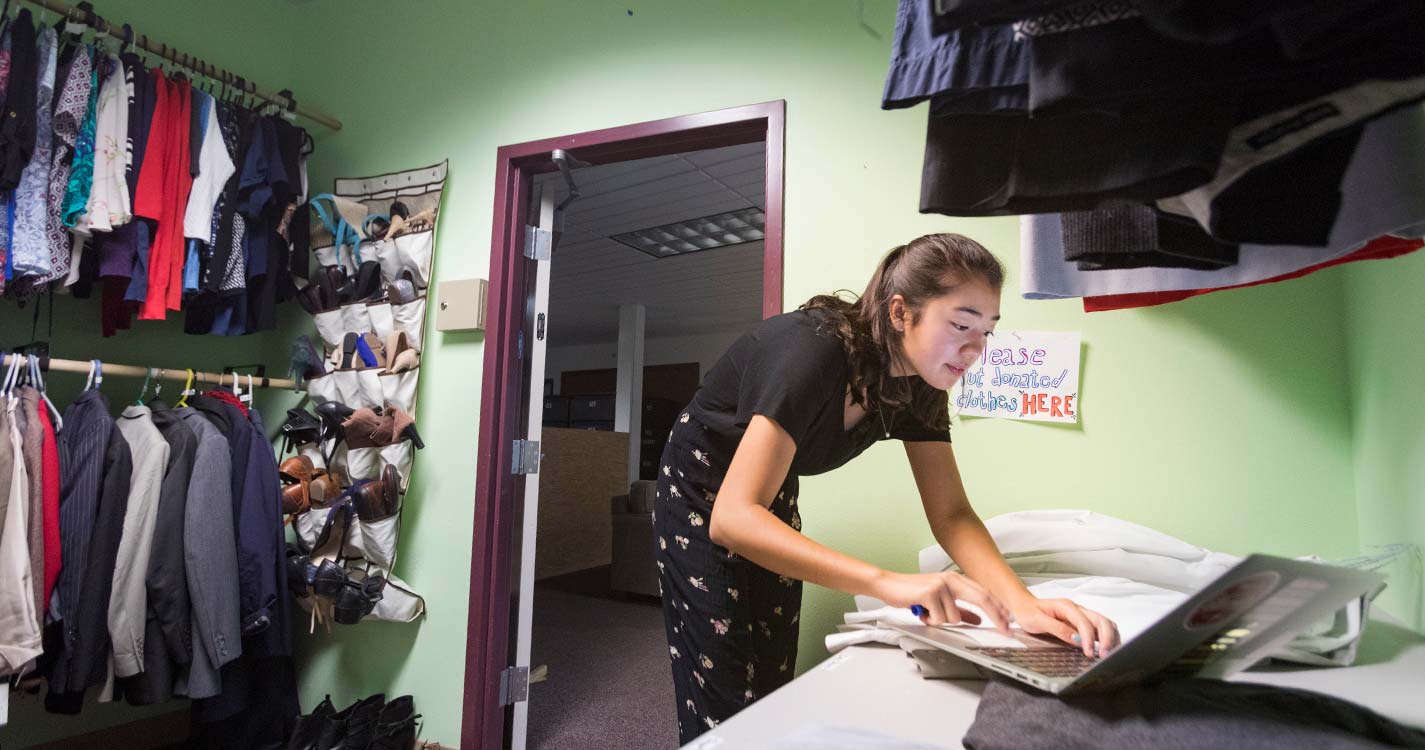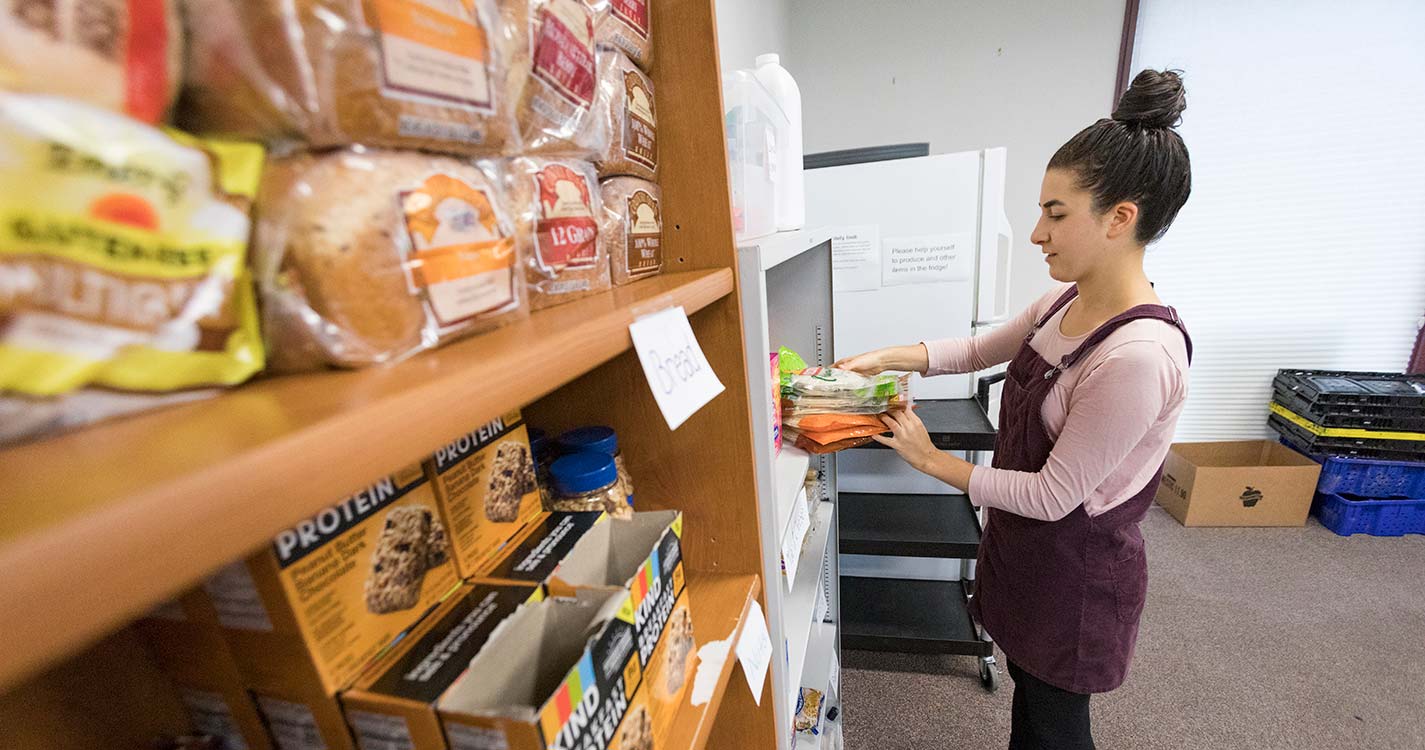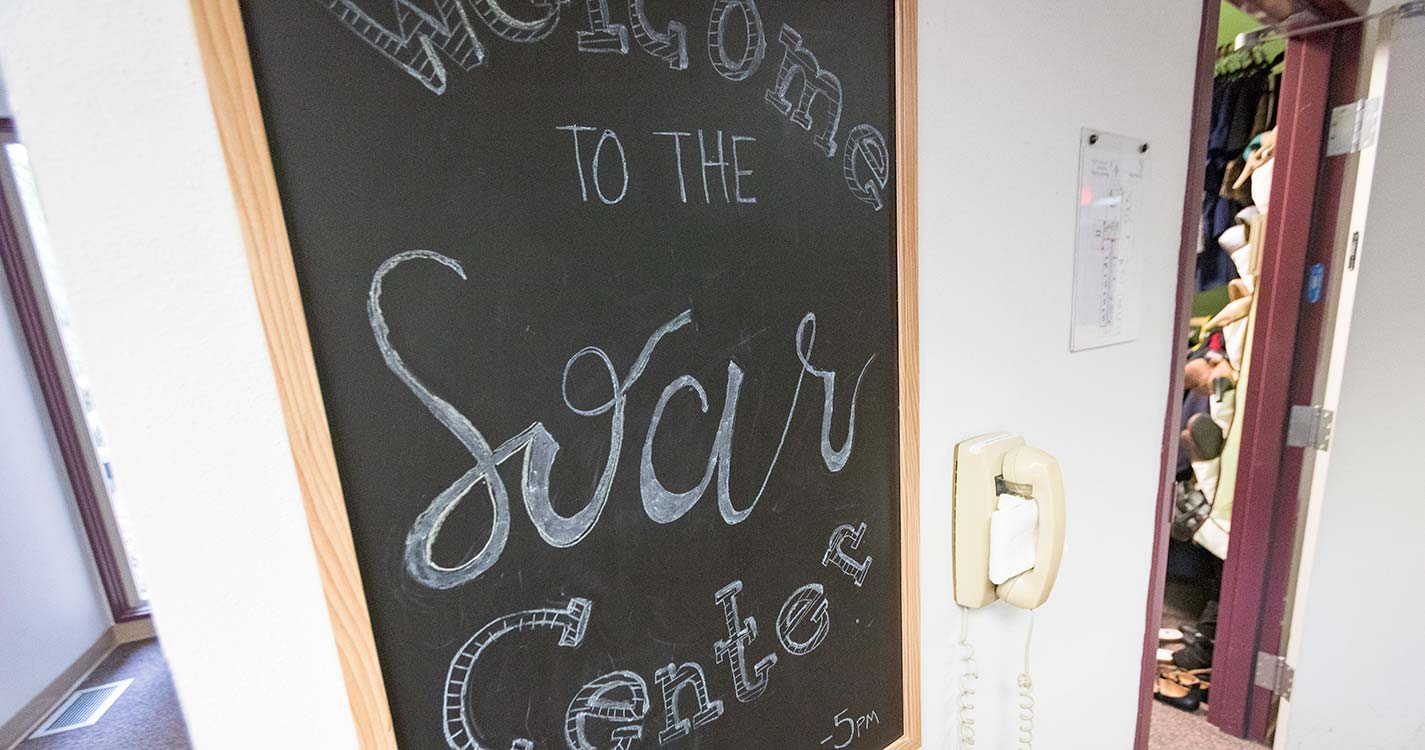A vintage Pendleton skirt, funky ties and black strappy flats currently sit in Shepard House, awaiting the next student who is preparing for a professional event.
Expenses related to public presentations, conferences and internships can add up. What if students could choose interview-ready clothing — even graduation regalia — and keep it for free, no questions asked?
To address this need, several students, including Michelle Hicks ’20, Sarah Alexander ’19 and Olivia Orosco ’18, created the Clothing Share last year.
Initially a fast-fix for students who were presenting at a symposium but lacked professional outfits, the Clothing Share started as a resource in Assistant Professor Catalina de Onís’ office closet. It’s since transformed into a shop of hundreds of items of cleaned, professional attire open to all Willamette students. Graduation gowns, which were donated by students after commencement and collected by Orosco, are also available for free instead of the usual $60 fee.
Officially open since September, the Clothing Share “mitigates some of the barriers that students face when leaving Willamette and entering the professional world,” says Hicks.
The Clothing Share and the bigger initiative it represents — Students Organizing for Access to Resources Center (SOAR) — set out to address students’ unmet basic needs.
Run and operated by 22 students, the SOAR Center offers free clothes, books and food through the Clothing Share, the First-Generation Book Drive and the Bearcat Pantry. Center hours of operation are 9 a.m. to 5 p.m., Monday through Friday.
No ordinary food pantry
The Bearcat Pantry aims to help students who may not have the resources to buy enough food.
Like hundreds of other university food pantries across the nation, it grew out of students’ recognition that hunger can pose a serious problem for some of their peers. Students might face financial challenges that cause them to skip meals and reduce what they do eat.
Similar pantries exist at nearby institutions, including Reed College, Portland State University, Lewis and Clark University, Pacific University, Oregon State University and Western Oregon University.
In the four months the Bearcat Pantry has been open, it’s helped 250 students and received nearly 1,500 donations. To preserve users’ privacy, coordinators only track visitor totals and the last five digits of student ID numbers.
Students can choose up to six items per visit, selecting from a range of staples like pasta and granola bars, as well as organic food and fresh fruit or vegetables. The push for organic food reflects the background of Pantry Director Tova Hershman ’19, who grew up on an organic farm and has always had a passion for local and sustainable food.
Fresh produce is hand-picked by volunteers who collect excess produce with Salem Harvest, and the pantry also seeks donations from local farms and community partners such as the Boys and Girls Club.
“I recognize the importance of adequate nutrition and believe that a lack of food should never be the barrier holding students back from success,” Hershman says. “Access to food is a basic human right.”
Book by book
Ideas for need-based services like the SOAR Center began percolating years ago among former students.
The First-Generation Book Drive started informally in 2015 when Emmanuel Rodriguez ’15, a first-generation student who faced financial hardship during college, posted a Facebook message requesting donated books for students in a similar situation. Soon, he accumulated dozens of books.
New students took over the initiative after he graduated, and now the drive has about 2,500 books in circulation, according to Rebeca Lopez-Figueroa ’19 and Manuel Marcos-Gutierrez ’20, co-coordinators of the program. Each semester, about 80 students check out books, with some science students saving upwards of $100.
The concept of a one-stop shop for the SOAR Center coalesced last summer after Community Service Learning and La Chispa students saw similar models at regional universities. Organizers’ next goals include securing a permanent space, as the center can only stay in Shepard until the end of the school year. A central location is crucial, because students who need one resource will likely need another one SOAR provides.
Hershman says, “Increasing accessibility (to these resources) can help decrease the stress on students that financial insecurity can cause.”




